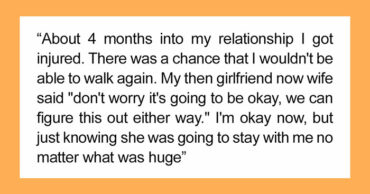Having a food allergy can severely impact a person’s quality of life. They can’t simply go out and grab a bite with friends at any restaurant of their choice, and they have to spend time meticulously reading labels just to avoid a trip to the ER. And if you’re a parent of a child with food allergies, it’s important to always keep an eye on what they eat.
Well, one mom learned that lesson the hard way after her child was given a sample that they were allergic to. But instead of taking responsibility, she’s now blaming the restaurant for feeding her child nuts. Below, you’ll find the full story that a concerned employee recently shared on Reddit, as well as some of the replies invested readers left her.
This worker always shares product information with customers before giving them samples to try

Image credits: galitskaya/Freepik (not the actual photo)
But one mom is now blaming her for being unaware of her child’s severe nut allergy
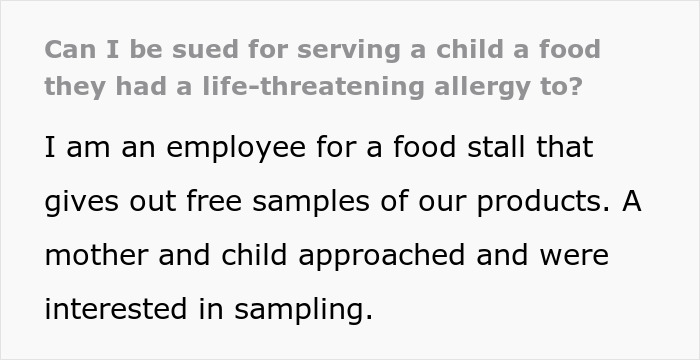
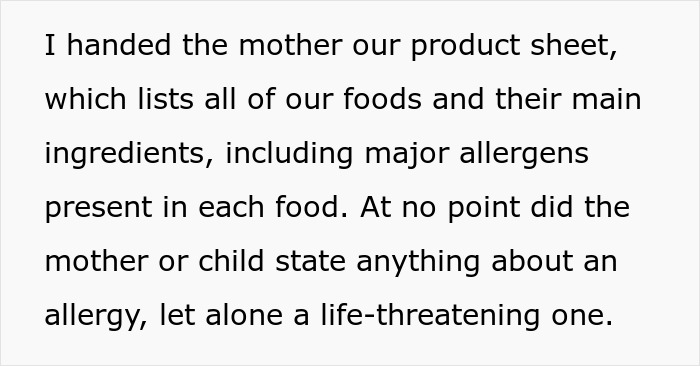
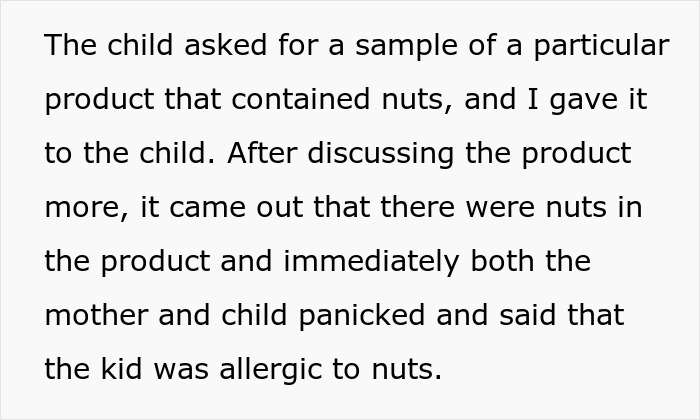



Image credits: pch.vector/Freepik (not the actual photo)
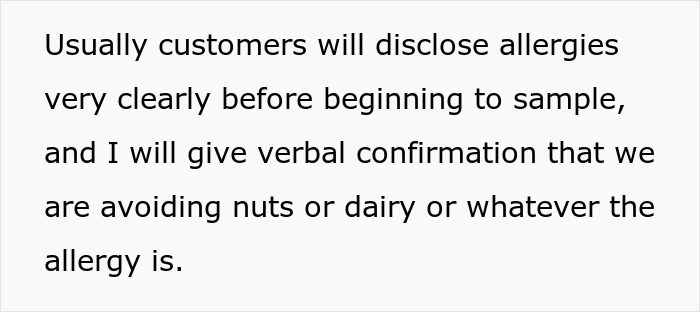
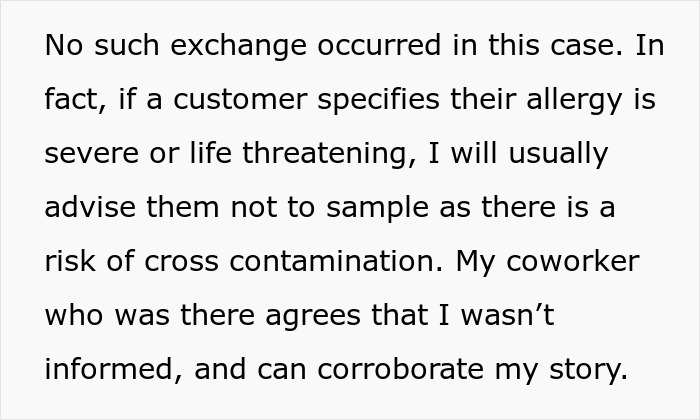

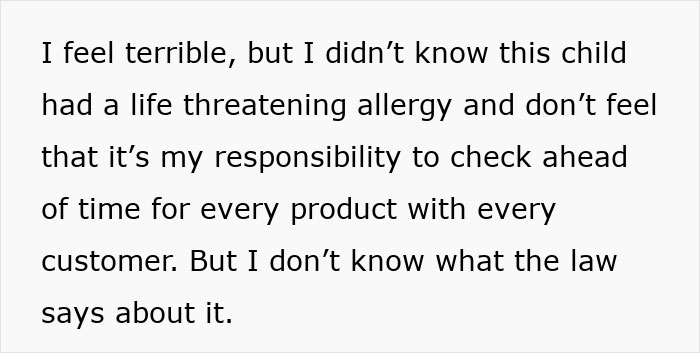
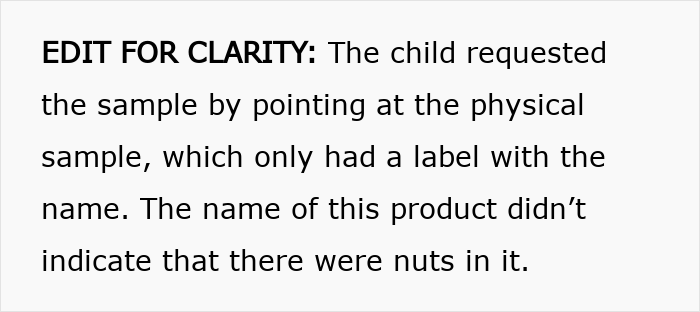

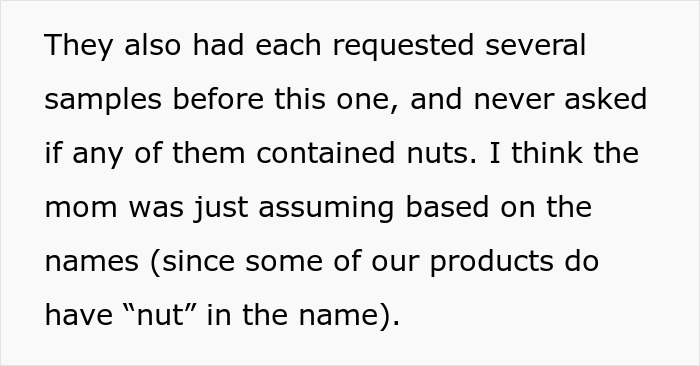
Image credits: anonymous
“I hope my post can help prevent this from happening to other people”
To find out more about this situation, we got in touch with the Reddit user who shared this post, who was kind enough to have a chat with Bored Panda. They revealed that, thankfully, there haven’t been any updates on the situation. “I’m hoping we won’t hear anything else about it!” she shared.
As far as why this mother failed to disclose her child’s allergy, the OP supposes that she was just naive. “I have a severe food allergy myself, but I’m experienced enough to know there is a risk every time I eat food I didn’t prepare myself. I think she thought that by quickly scanning the menu, the allergen would be obvious,” she noted. “But nuts in particular are hidden in so many things!”
The author also says that the replies to her post were helpful. “I was worried that I had screwed up not only from a legal standpoint, but an ethical one too,” she shared. “I was relieved to know that since I provided a full ingredient list, it was really up to the mother to screen each sample.”
“I disagree, however, with the replies saying this was a scam,” she added. “When you’ve worked in retail as long as I have, you know that people do dumb things constantly, then want to shift the blame when they realize they screwed up. It’s rarely ever a calculated scam.”
Finally, the author wanted to share a PSA. “If you or your kid has an allergy, it’s up to YOU to make sure other people understand it and to train your child to be cautious,” she told Bored Panda. “Servers at restaurants aren’t mind readers. And if the allergy is very serious, consider not eating out or taking free samples at all.”
“Even if your server understands the allergy, there is still always a risk for cross contamination! You’re always taking that risk,” the OP continued. “And if you’re a business that serves food, put disclaimers and safety protocols in place to help lessen the chance of a guest having an allergic reaction. I hope my post can help prevent this from happening to other people.”
One in thirteen children in the United States have a food allergy

Image credits: EyeEm/Freepik (not the actual photo)
According to Food Allergy Research & Education (FARE), one in ten adults and one in thirteen children in the United States have at least one food allergy. And while there are over 170 foods that have been reported to cause allergic reactions, the most common allergens are milk, eggs, peanuts, tree nuts, wheat, soy, fish, shellfish and sesame.
Unfortunately, over half of the adults with food allergies in the US, and over 40% of American children with food allergies, have experienced a severe reaction to their allergens. In fact, every ten seconds an allergic reaction to a food sends someone in the United States to the emergency room.
Because these allergies can be so severe, those who have them (and parents of children who have them) are responsible for minimizing their risks of exposure. When it comes to eating meals, the safest option is always going to be simply dining at home.
FARE reports that over a quarter of parents of children with food allergies won’t even let their kids go to sleepovers or participate in camp, due to concerns about their little ones having an allergic reaction. And over 15% of parents of kids with allergies refuse to eat in restaurants.
10% of these parents even homeschool their children to avoid the risks of exposure that would come from going to school. Meanwhile, it’s always a good idea to carry an epinephrine auto-injector, or Epipen, when out and about if there’s any risk of being exposed to your child’s allergens.
It’s the customer’s responsibility to inform food vendors of any allergies they may have

Image credits: studioworkstock/Freepik (not the actual photo)
When it comes to suing a restaurant or business for exposing you or your children to an allergen, it’s a complicated topic. On one hand, as many readers pointed out, yes, the mom can sue for essentially anything she wants. But that doesn’t necessarily mean that she’ll be successful in court.
Prosper Law notes that it is a restaurant’s responsibility to clearly label menus and provide customers with allergy information. But it is the customer’s responsibility to inform the kitchen staff of any allergies they have, as they won’t know to be extra careful to avoid cross contamination if they aren’t aware that it could be dangerous to make a mistake.
And as far as being able to have a case in court, Prosper Law says that a lawyer must be able to prove that a restaurant failed to uphold its duty of care while providing food to a customer with an allergy. Examples of this would include mislabeling ingredients on the menu or failing to provide accurate information about allergens.
Allowing cross contamination to occur in the kitchen, even after being notified of allergies, would also fall under this umbrella. Failing to properly train staff and blatantly ignoring allergy notices would also count as breaching their duty of care.
In this particular case, however, the employee immediately provided the mother with information detailing the product’s information and which allergens are present in which item. If anyone failed to do their due diligence, it was the mom who didn’t immediately mention that her child has a severe allergy.
We would love to hear your thoughts on this situation in the comments below, pandas. Then, if you’re interested in checking out another Bored Panda article discussing food allergy drama, look no further than right here.
Later, the author responded to several comments and shared more details about the situation
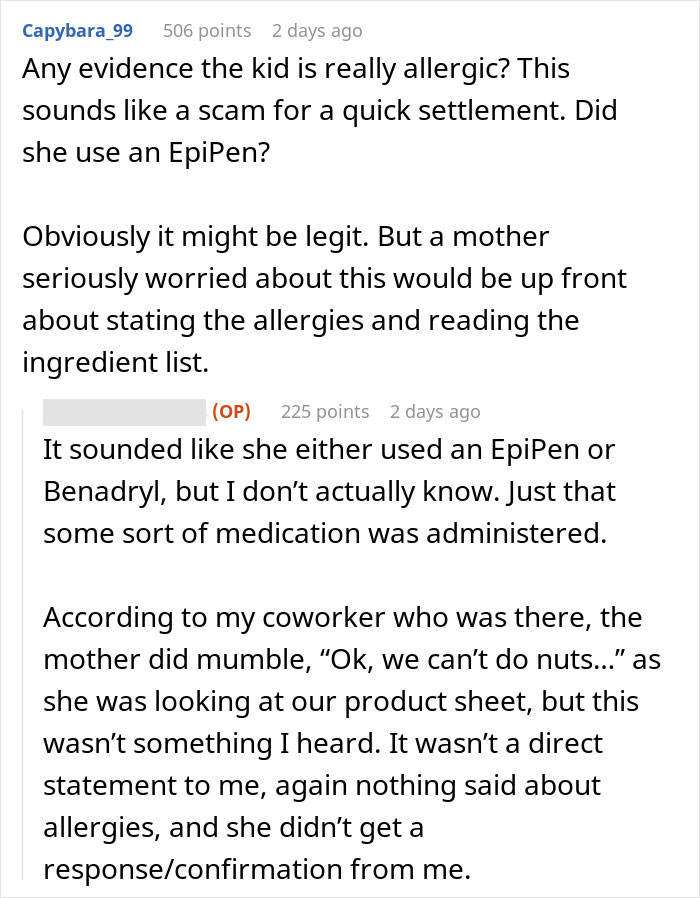
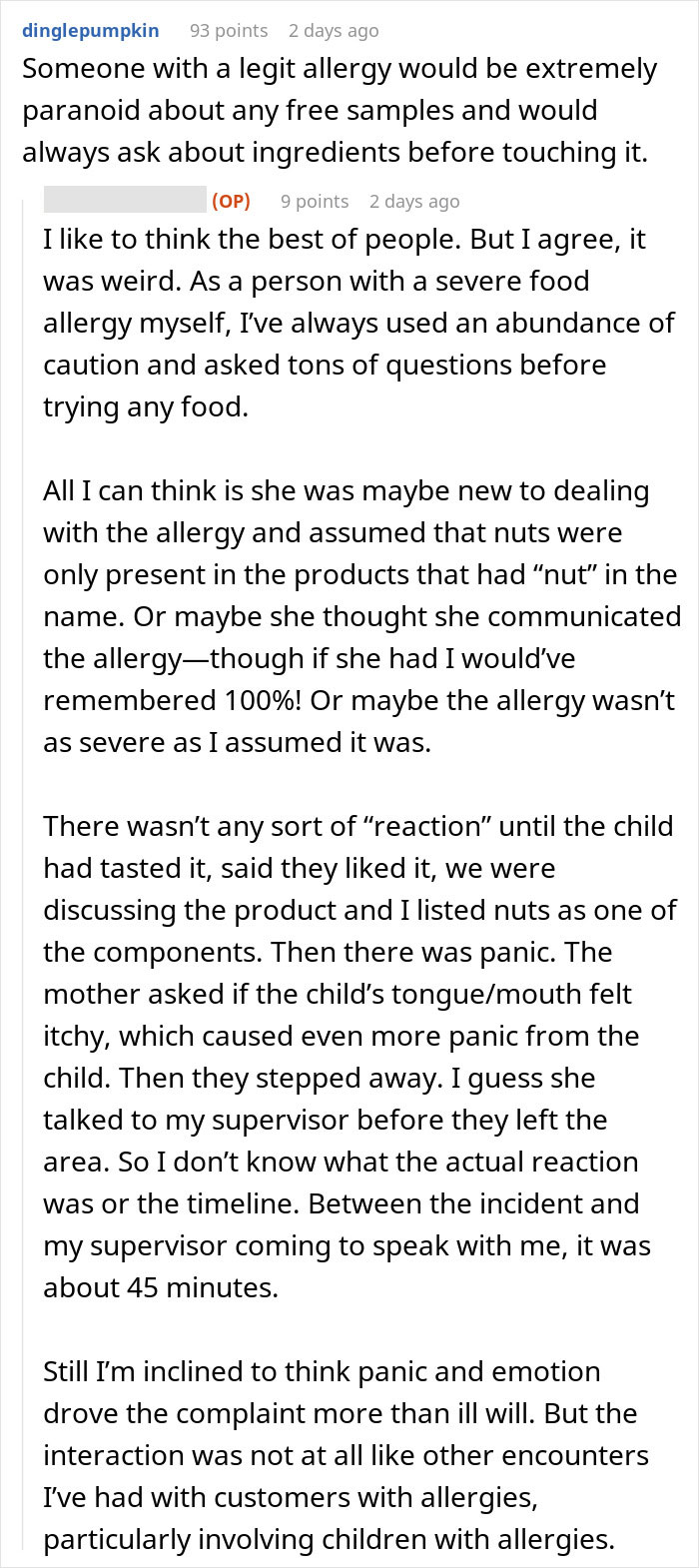
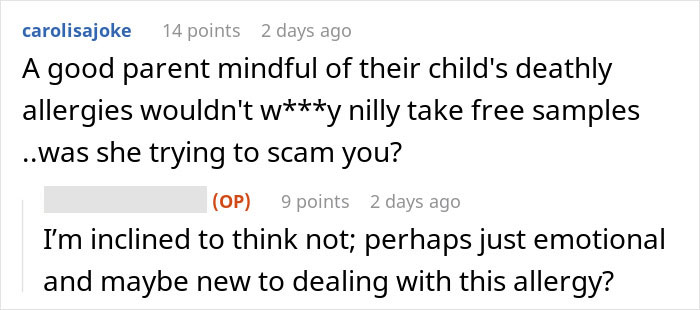
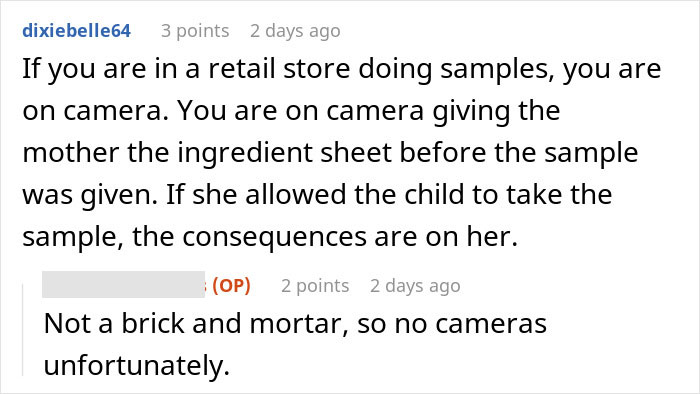
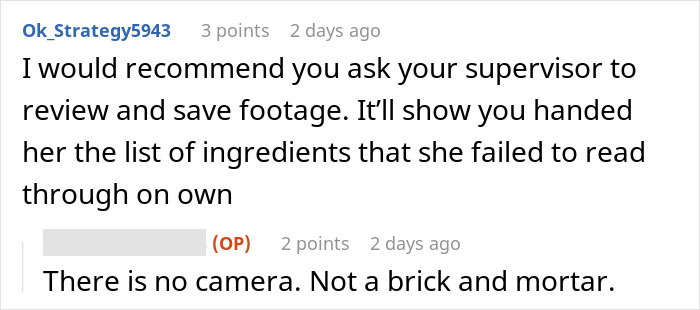
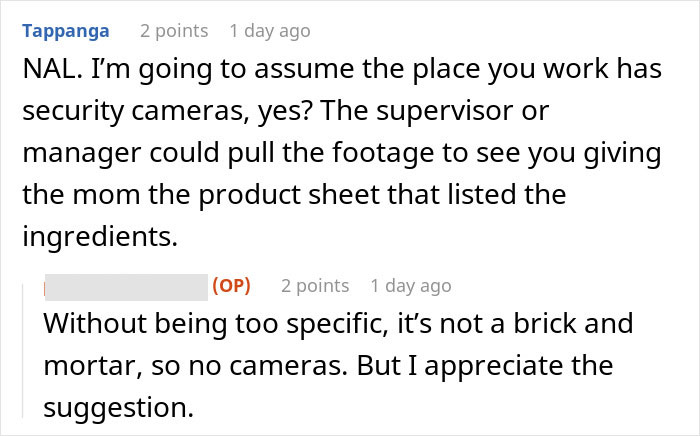
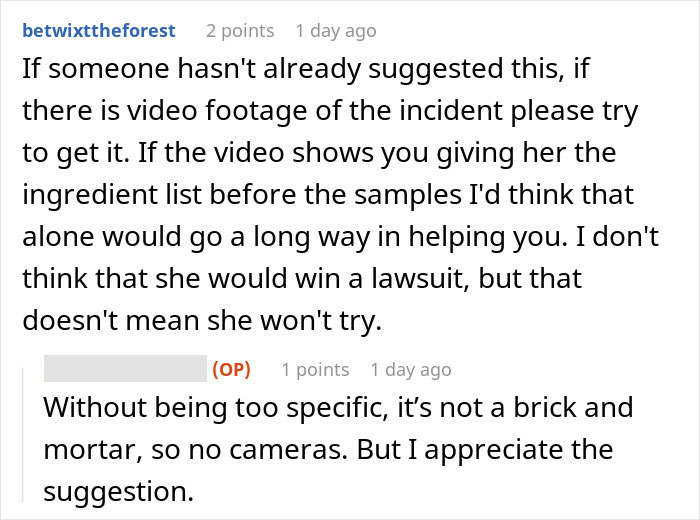
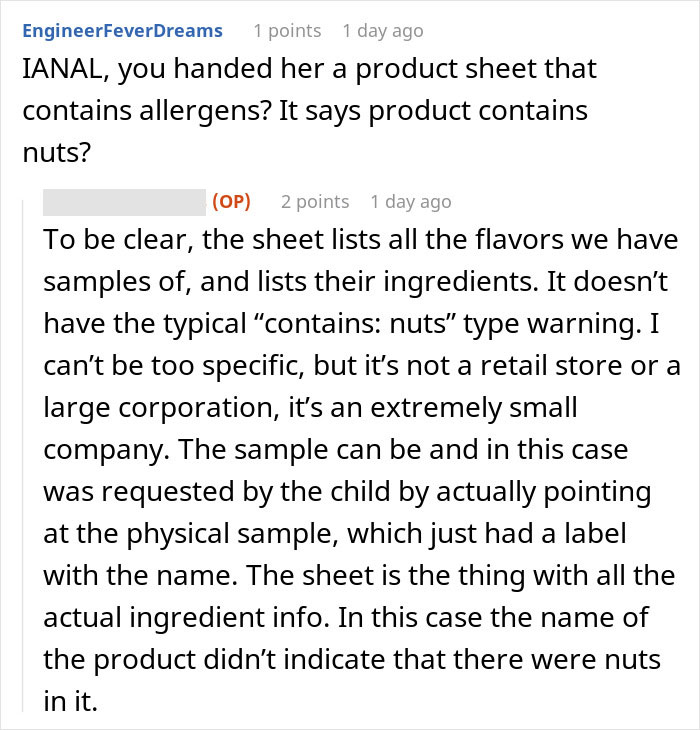
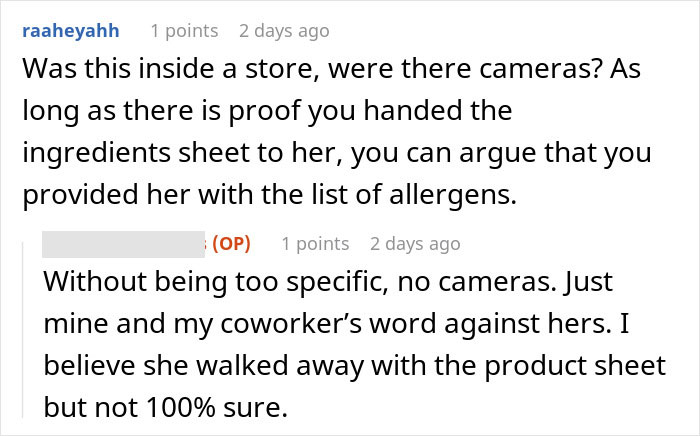
Some readers even had similar stories of their own to share
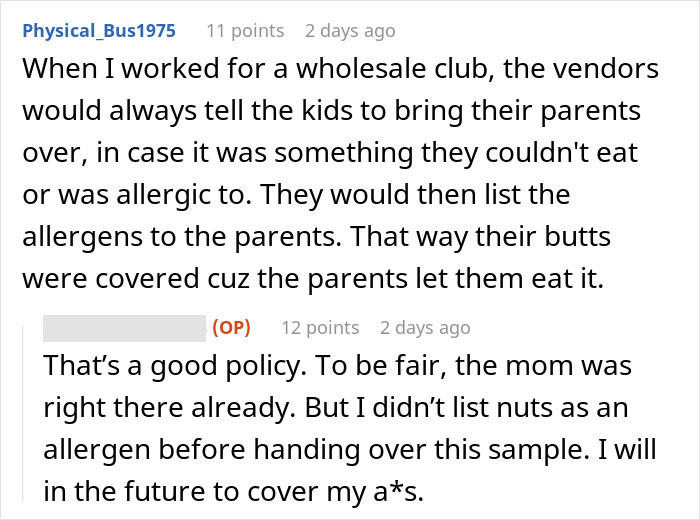
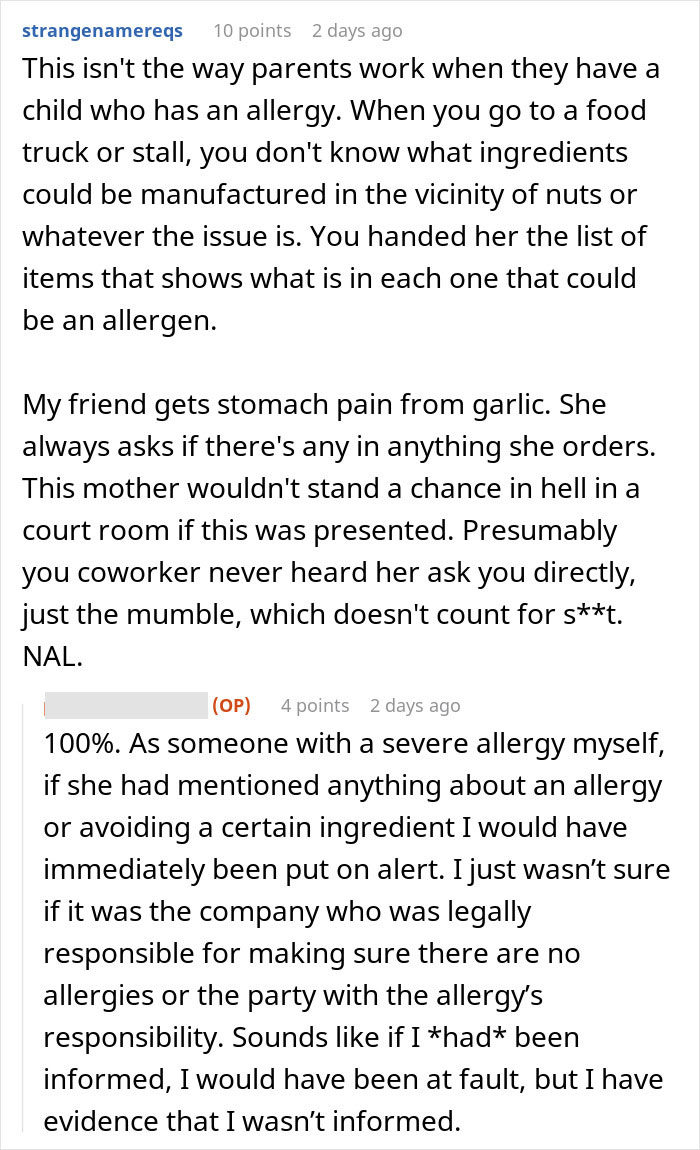
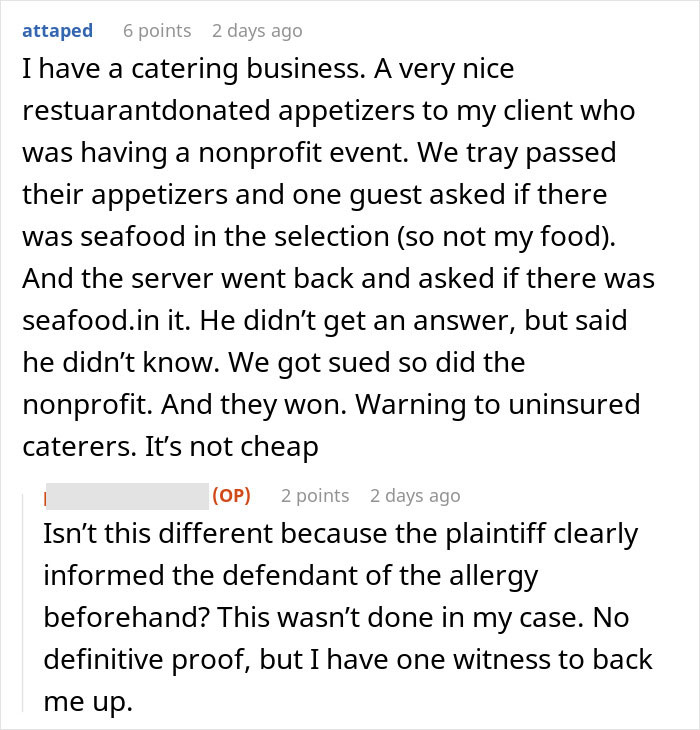
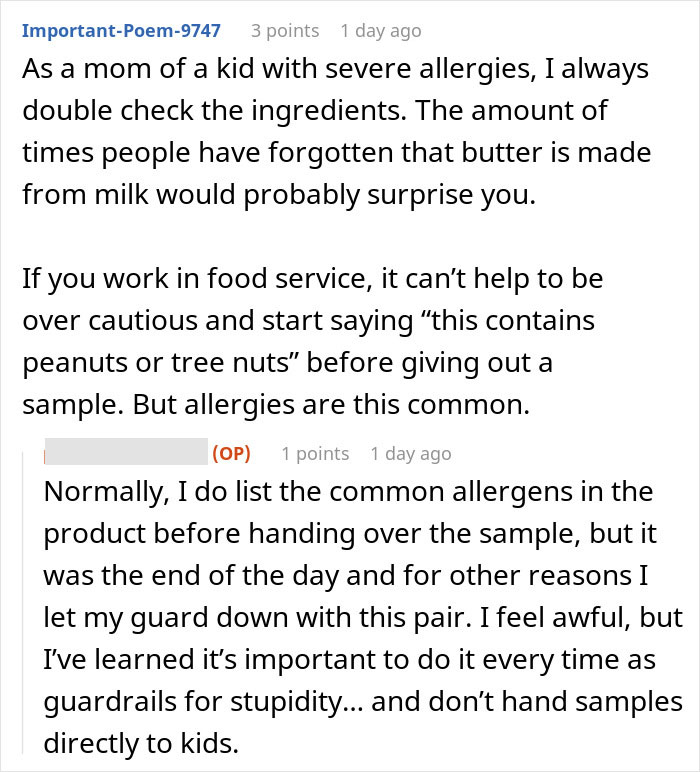
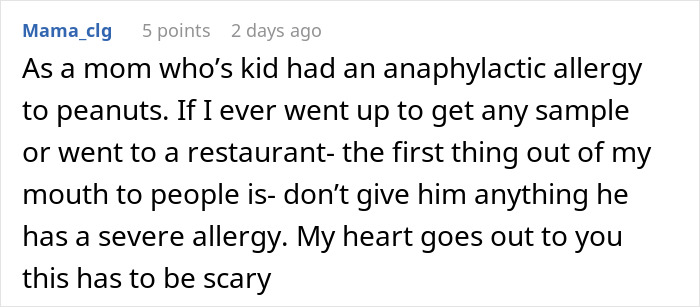
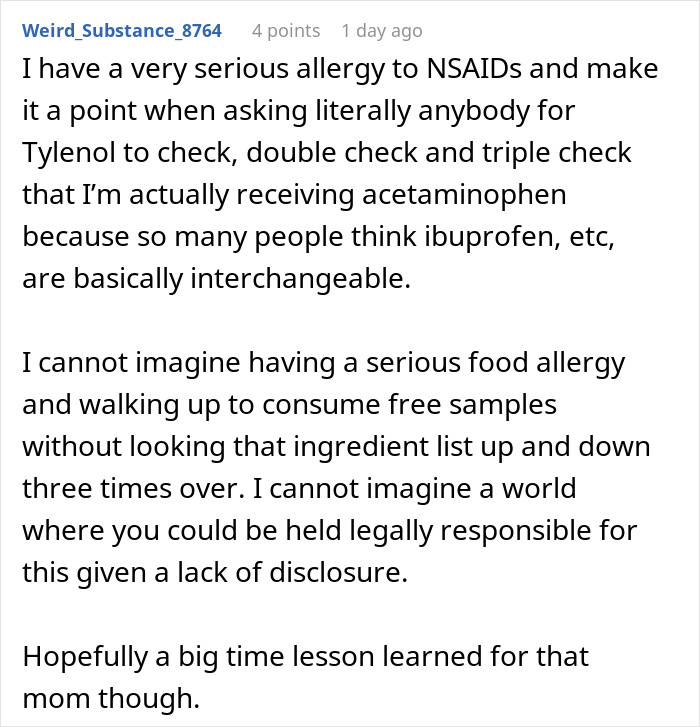
Many readers noted that the mother could sue, but she probably wouldn’t have a leg to stand on in court


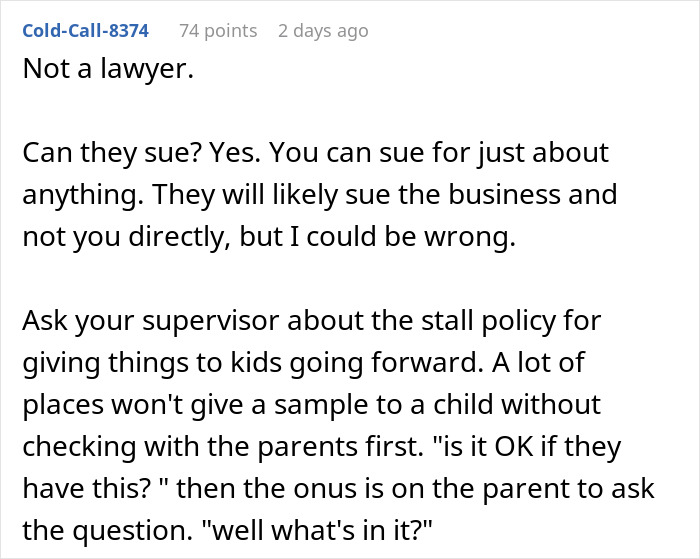


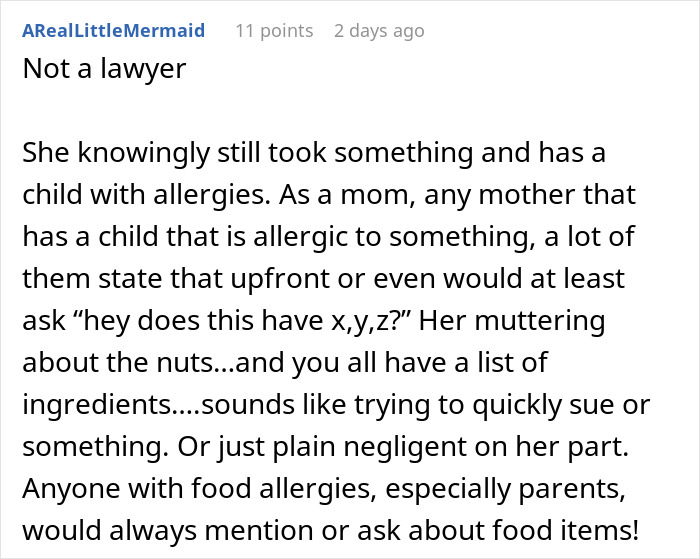


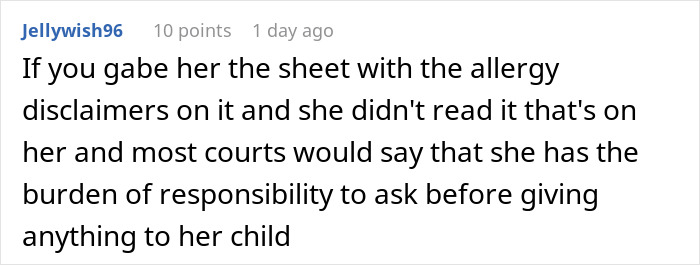
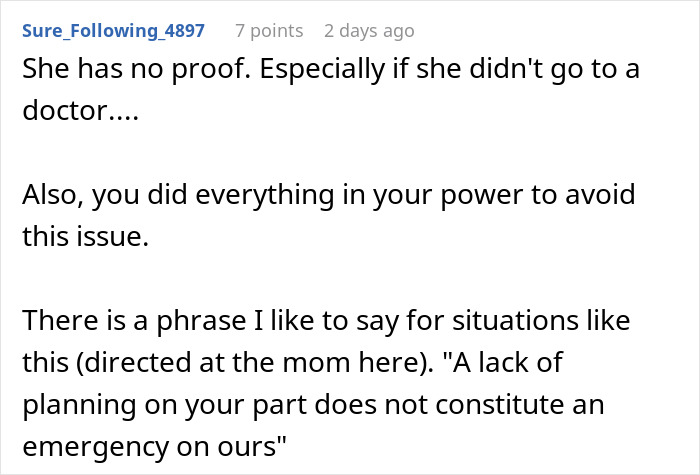
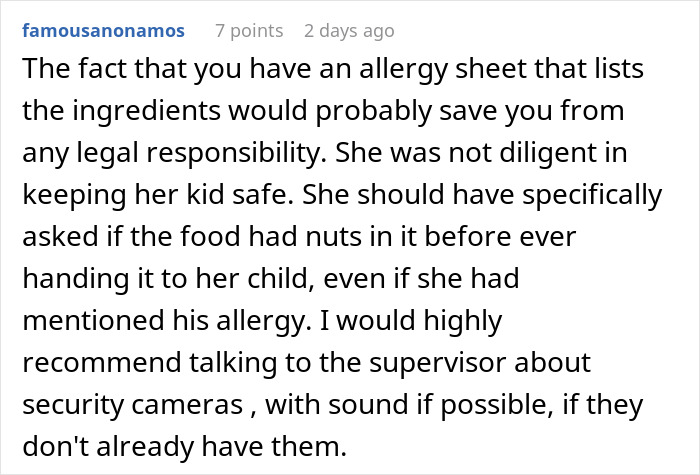



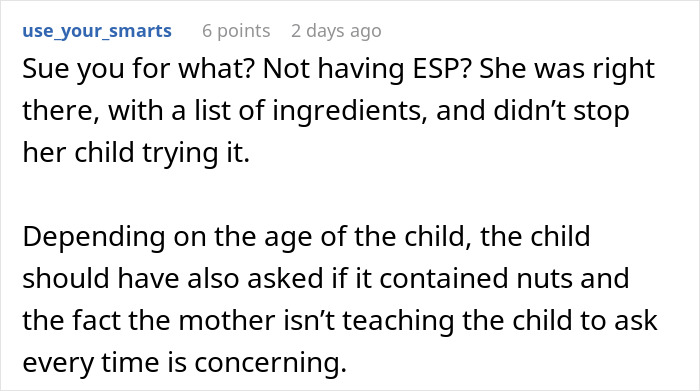




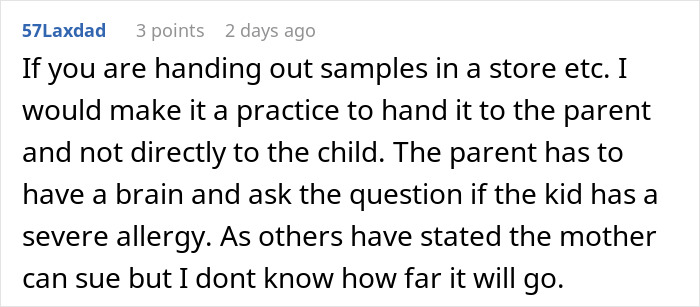
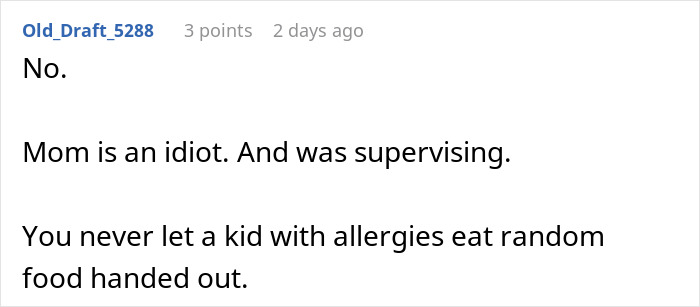

 Follow Us
Follow Us



